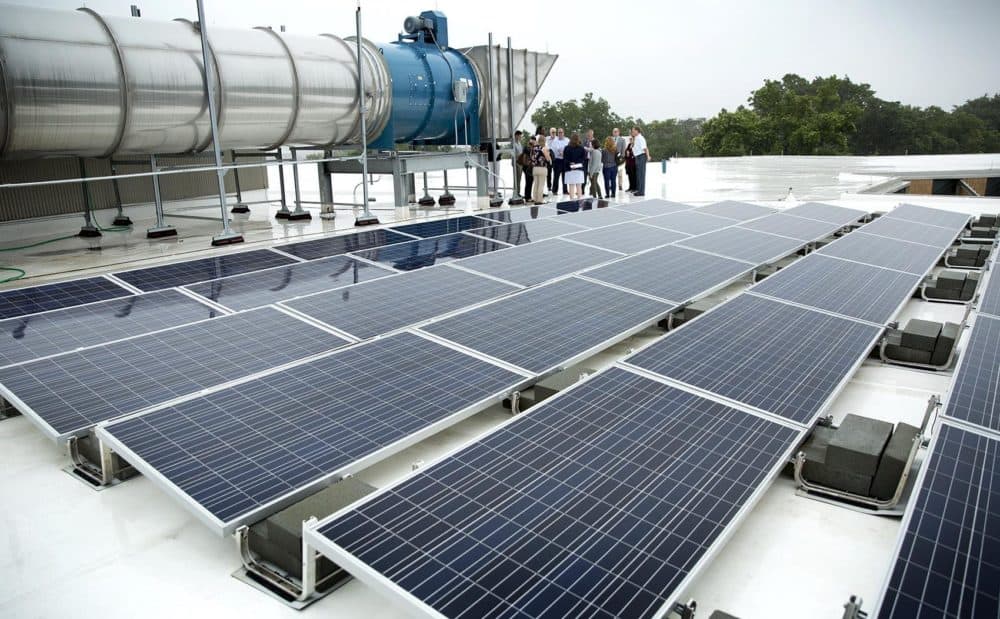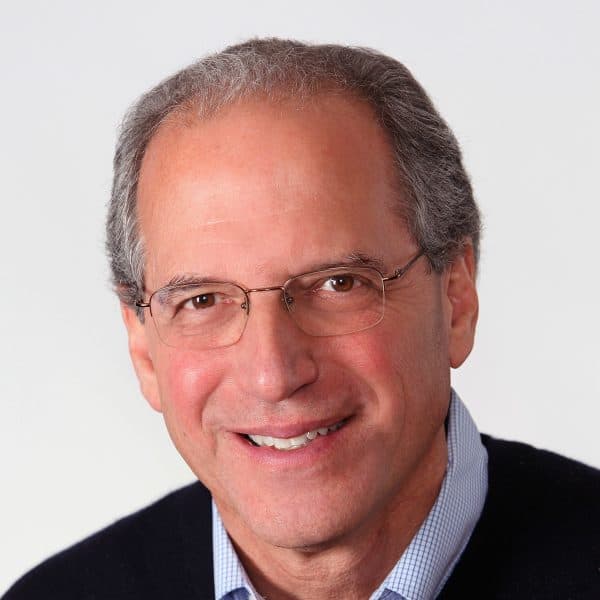Advertisement
Covering Climate Now
How Solar Energy Policies Could Help More Low-Income Residents

Rev. Mariama White-Hammond is an outspoken activist for climate justice and the founding pastor of New Roots AME Church, a multi-racial congregation in Boston’s Dorchester neighborhood. She wants to give low-income households and diverse populations a genuine stake in the state’s race to build a clean-energy future. Massachusetts solar policy, she told me, “should be targeting the people for whom there is a double benefit of not just having solar, but maybe having two or three more meals a week because of the money they are saving.”
More than 18% of the state’s electricity today comes from the sun, making Massachusetts a solar power leader. But for Massachusetts to reach net zero greenhouse gas emissions by 2050, as mandated by the new Massachusetts climate bill, renewable energy’s role will have to step up dramatically in the years ahead.
Installing photovoltaic arrays on low-income households may not catapult our state to great heights of solar electricity generation, but it will help address the disparity that Rev. White-Hammond raises. In 2013, when my wife and I bought solar for our home, we delighted in the investment tax credits that knocked nearly $10,000 off the price of our $27,000 photovoltaic array. Within six years, our solar array had more than paid for itself in production incentives and reduced electricity bills. But low-income residents have not fared nearly so well.
For many, raising the capital to buy a home solar array is an insurmountable hurdle. Investment tax credits offer no real help to households with limited taxable income. The Mass Solar Loan program, which ran from 2015 to 2020, made solar financing easier for nearly 5,800 Massachusetts homeowners, but little more than a third of those loans went to low-income households.
As a first step, Massachusetts should revive and expand the Mass Solar Loan program, targeting low-interest loans at low-income households and partially converting those loans to grants, as it has done in the past. Reinvigorating this program will give low-income homeowners valuable solar access, yet it still won’t reach many who can’t afford the reduced cost of a subsidized loan. Tenants in multi-family housing also do not benefit from loans because they have no ownership rights to the rooftops and parking areas of their buildings.
The Mass Solar Loan program ... made solar financing easier for nearly 5,800 Mass. homeowners, but little more than a third of those loans went to low-income households.
“Community shared” solar projects offer a valuable alternative that the state is now encouraging through its Solar Massachusetts Renewable Target SMART program. Instead of serving a single building, a community solar array may be sited on a commercial rooftop, a closed landfill or another solar-friendly property. Multiple households can subscribe, earning a share of the facility’s energy output. Under SMART, a stepped-up rate of compensation applies to community solar facilities that allocate at least 50% of their electric output to low-income customers and residents of neighborhoods that meet the state’s environmental justice criteria — a combination of income, racial composition, and limited English language proficiency.
Resonant Energy is one of a number of Massachusetts solar developers that are making active use of this special SMART incentive. In December 2020, it completed a project at Temple Emunah in Lexington, where solar parking canopies provide discounted electricity to 20 low-income households, while supplying 80% of the temple’s power needs. Using another SMART incentive, Resonant Energy has installed solar arrays on 32 multi-family affordable housing projects where the benefits of solar power are shared with building tenants.
The newly passed Massachusetts climate bill also includes funding for clean energy workforce training and job placement, start-up support for women and minority-owned businesses, and solar installation grants to non-profits focused on homelessness, food security and emergency shelter. But the challenge of promoting equity and fairness through clean energy shouldn’t fall solely on forward-looking states like our own.
America’s rooftops are a renewable energy goldmine, potentially supplying as much as 39% of our power needs nationwide.
President Biden has declared his commitment to “target[ing] 40% of the benefits of climate and clean infrastructure investments to disadvantaged communities.” Along with opening up jobs to people in those communities, the Biden administration should free up federal money to help make low-income housing solar-ready. Too many older buildings in low-income neighborhoods have aging roofs and outmoded electric systems that add prohibitively to the costs of installing solar power. Constrained by current guidelines, federal support seldom reaches them. Long-established energy assistance programs should be refocused on closing this gap.
In addition, the federal investment tax credit, which the president seeks to extend for 10 years, should be convertible to a grant for solar installations benefiting low-income households that lack tax liability, allowing them to tap the tax credit. The president has hinted at this possibility in his references to a “direct pay” alternative to claiming the tax credit.
America’s rooftops are a renewable energy goldmine, potentially supplying as much as 39% of our power needs nationwide. They also offer an energy justice opportunity that shouldn’t be squandered.
This story is part of Covering Climate Now, a global journalism collaboration of more than 400 news outlets committed to better coverage of the climate crisis. This year's theme is "living through the climate crisis."
